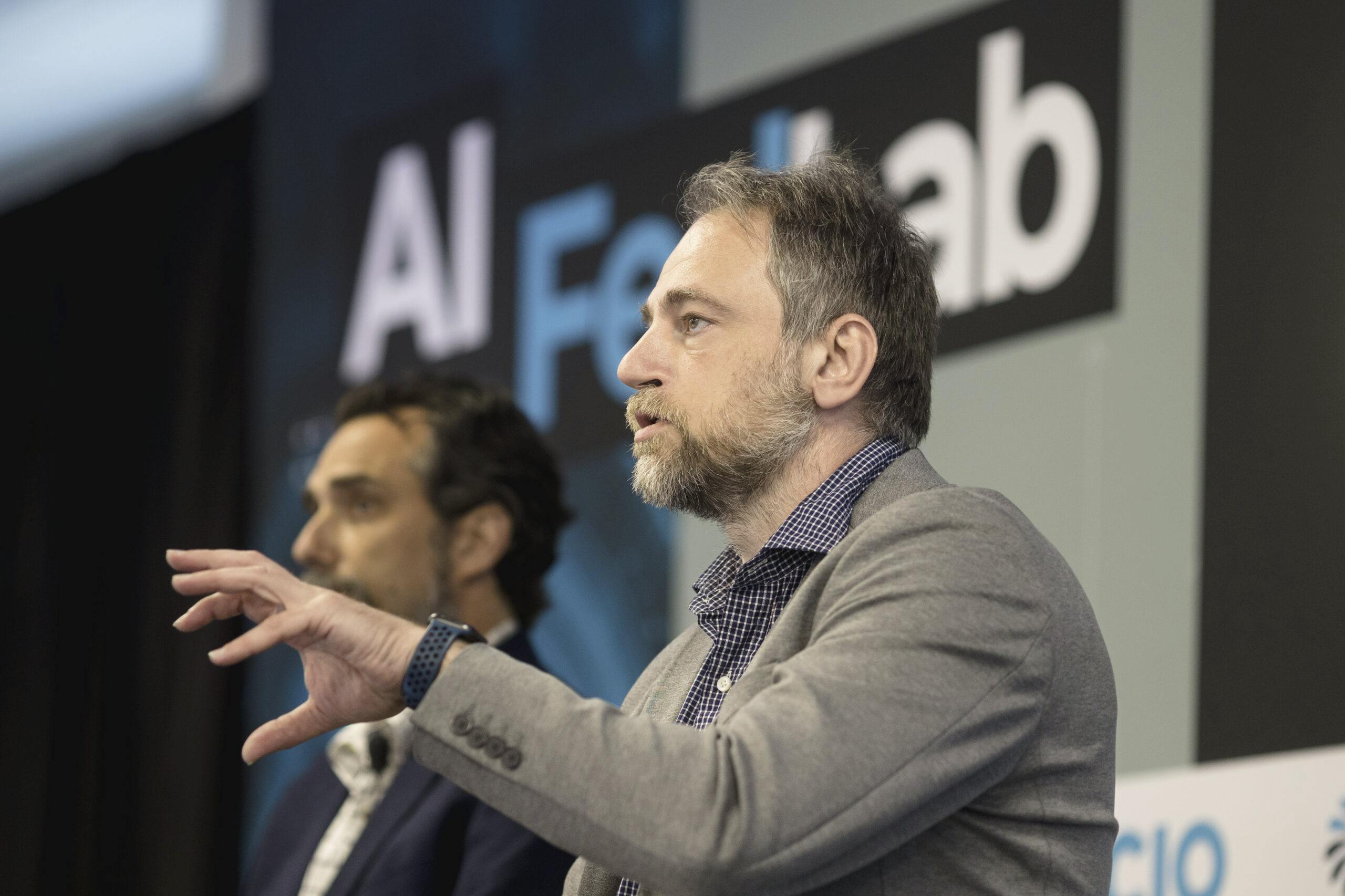DOE Accelerates AI Research to Defend Critical Infrastructure
The Energy Department and its national labs are increasing partnerships to advance AI research, scale new tools and boost national security.

The Department of Energy and its 17 national laboratories are heavily investing in AI and AI-related research to support the nation’s energy and national security efforts. Hosted within Oak Ridge National Laboratory, Center for AI Security Research (CAISER) teams are using a new tool called Lantern to evaluate adversarial attacks.
Lantern will help researchers better understand the threats posed by real-world cyberattacks on critical infrastructure quickly and interactively, CAISER Director Edmon Begoli told GovCIO Media & Research at the AI Expo in Washington, D.C. on Wednesday. Begoli added Lantern — and its future counterpart Photon — will give insight into how AI models make decisions, and reduce the amount of time it takes for security evaluations.
CAISER is partnering with federal agencies like the Department of Homeland Security, the Air Force Research Lab and the Defense Advanced Research Projects Agency (DARPA) to scale these solutions across government.
“We’re developing these frameworks where you can do the scale using the high performance computing infrastructure,” said Begoli. “It takes human months and months to do the assessment and analysis … and let’s say that you need to deploy something in a month [this is why] we need to do this at scale.”
Begoli and the team at CAISER are preparing to release Photon in the coming months, which will help evaluate large numbers of AI models in tools like automated infrastructure protection.
“We still don’t fully understand how AI models make decisions; it’s just by the nature of how models are built and trained. We don’t understand all the vulnerabilities, and we have to understand these vulnerabilities in order to say we can safely deploy AI,” said Begoli.
Private Sector’s Role in Winning the AI Race
DOE and its national labs are collaborating with both public and private sector partners to ensure America wins the AI race against its adversaries. Energy Secretary Chris Wright said the U.S. cannot fall behind other countries in AI development during a fireside chat at the event.
“We have the scientists in United States; we have private enterprises. AI is mostly going to be driven by private capital and private businesses, but we need to make sure they’re free to move fast and develop partners with the labs, so that we maintain the lead in AI,” said Wright.
Acting Director for the Energy Department’s Office of Science Harriet Kung said its partnership with the National Nuclear Security Administration (NNSA) increased focus on performance efficiency and scaling tech solutions.
“You have to make sure that 1000s of these components have to be integrated together and work,” said Kung. “That is something that’s kind of a partnership that DOE and industrial vendors have done so very well, and that is really the foundation of a lot of advances that we have seen today.”
In addition to partnering with other federal agencies, Kung highlighted the growing need for the department to collaborate with industry leaders. Kung said these partnerships could help the private sector develop and validate new AI models that federal research efforts could use later. By combining private sector knowledge with science-based AI models, Kung said scientific discoveries could advance faster and reduce government spending.
“We believe that it’s very important that we try to understand how private company models work, and by providing them with well curated data to help them train, develop and validate new models,” said Kung.
This is a carousel with manually rotating slides. Use Next and Previous buttons to navigate or jump to a slide with the slide dots
-

Navy Pushes AI from Experiments to Everyday Warfighting Functions
The Navy’s hybrid fleet hinges on a common naval lexicon and trustworthy AI woven into every intelligence function.
6m watch -

VA Launches Tech Pilot Portfolio to Accelerate Modernization
The Department of Veterans Affairs launched technology pilots to accelerate modernization by testing tools that enhance veterans services.
5m read -

Navy’s Future Fleet Hinges on Autonomy, Agility
Navy officials detail how AI, unmanned systems and agile acquisition will drive the next generation of maritime operations.
5m read -

Federal AI Series: Security Priorities
AI security threats, data protection and emerging defenses power federal agency tech strategies as AI adoption accelerates.
7m watch Partner Content








